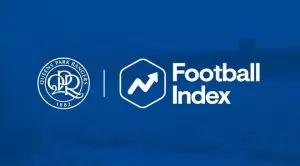 The owners of the Football Index website transferred customers’ stakes worth approximately £15 million to a connected company that spent the money on developing technology to sell similar products in other countries as the gambling platform collapsed in the UK.
The owners of the Football Index website transferred customers’ stakes worth approximately £15 million to a connected company that spent the money on developing technology to sell similar products in other countries as the gambling platform collapsed in the UK.
The Athletic reported of a document, according to which the aforementioned sum was transferred from BetIndex, the company that operated the Football Index website, to a holding company called Index Labs a part of the so-called “Project Hadron”. As mentioned above, the owners of the virtual stockmarket for football players planned to use the platform’s technology and sell it in overseas markets.
Football Index was promoted as a soccer trading platform that allowed its customers to purchase shares in certain footballers and earn cash dividends depending on the players’ real-life performances. As Casino Guardian reported, in March 2021, the company surprisingly announced an enormous reduction of its customers’ dividend payments by up to 90%, fuelling the biggest collapse of a gambling company in the history of the UK gambling sector, with some of the platform’s users losing huge sums of money literally overnight.
A recent review into the scandalous collapse of Football Index revealed that although there were more than £120 million in virtual share portfolios on the gambling platform, only a small portion of this amount was held in actual cash, which made it impossible for the operator to deal with the situation. Ever since March, the company has not managed to explain where the money has gone.
About £15 Million of Customers’ Money Poured into “Project Hadron” upon Football Index’ Collapse
 In August, insolvency practitioners BDO prepared a presentation that the company created the Project Lynx as part of their efforts to get more funding from investors so that they are able to continue building “Project Hadron” even following the massive collapse of Football Index. As reported by The Athletic, the project has been related to global expansion plans and a product called “Token Trader”.
In August, insolvency practitioners BDO prepared a presentation that the company created the Project Lynx as part of their efforts to get more funding from investors so that they are able to continue building “Project Hadron” even following the massive collapse of Football Index. As reported by The Athletic, the project has been related to global expansion plans and a product called “Token Trader”.
Reportedly, Index Labs was paid by BetIndex as a technology service provider.
Back in August 2021, “Project Hadron” was only about 40% complete, with about £15 million had so far been spent on it. The Athletic revealed that, in the last few weeks, employees of Index Labs were laid off and did not get payment for their work in the final month, as the company’s funds seem to had been all spent.
“Project Hadron” has been considered a symbol of the ambitions of Football Index for global expansion before the online gambling platform was hit by the coronavirus pandemic. Apart from the high hopes that the company put on it, users had also hoped that the project would result in making connections between different counties, which, on the other hand, could boost the value of the customer shares is football players, as well as the users’ ability to trade them.
Football Index Platform Denies Allegations of Being Pyramid Scheme
 Only a month before the massive collapse of the gambling platform, in February, a video with the engineering staff of Football Index outlined the company’s plans to fully replace the UK product with a new kind of product. At the time, one of the engineers said that the company would not migrate the existing Football Index platform to the product developed in “Project Hadron”.
Only a month before the massive collapse of the gambling platform, in February, a video with the engineering staff of Football Index outlined the company’s plans to fully replace the UK product with a new kind of product. At the time, one of the engineers said that the company would not migrate the existing Football Index platform to the product developed in “Project Hadron”.
However, according to the leaked documents, Football Index transferred massive sums of money into Index Labs over a 2-year period. The documents claim that Index Labs received £4.45 million in 2019, followed by £9 million in 2020. In the first few months of 2021, right before the football gambling investment platform’s collapse, a further £3.8 million were transferred to Index Labs. In fact, BetIndex, the company that operated the Football Index website, was the only customer and source of revenue for Index Labs.
Furthermore, as reported by The Athletic, the leaked documents also reveal how Football Index was losing massive sums of money at the beginning of 2021 but it actually increased the dividend payouts even though its revenue was disappearing. In March, before the gambling operator entered administration, a spokesperson of Football Index denied all allegations that the company’s model was similar to so-called pyramid schemes.
According to The Guardian, sometime in 2016, a former Football Index employee warned the company’s directors that the business model of the operator was not only unsustainable but also no different from a pyramid scheme, and sooner or later, its bubble would burst. A few years later, at the beginning of 2020, the UK Gambling Commission (UKGC) received information from some industry experts that the betting platform was a pyramid scheme masked as a football stock market service. After the company’s collapse, the UK gambling regulator faced much criticism for turning a blind eye on the signs preceding the company’s collapse and doing nothing to prevent it.
The worst part was when the company continued making attempts to get more money from investors to pursue the possibility of further expansion, especially in the markets of Germany and India, even when its UK platform failed.
- Author


